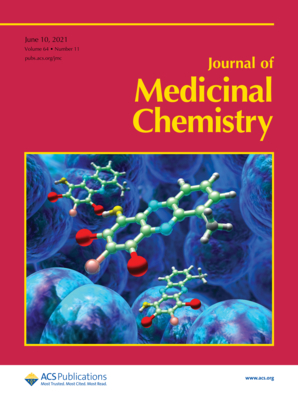"RFamide-related peptide-3 (RFRP-3) and neuropeptide FF (NPFF) target two different receptor subtypes called neuropeptide FF1 (NPFF1R) and neuropeptide FF2 (NPFF2R) that modulate several functions. However, the study of their respective role is severely limited by the absence of selective blockers. We describe here the design of a highly selective NPFF1R antagonist called RF3286, which potently blocks RFRP-3-induced hyperalgesia in mice and luteinizing hormone release in hamsters. We then showed that the pharmacological blockade of NPFF1R in mice prevents the development of fentanyl-induced hyperalgesia while preserving its analgesic effect. Altogether, our data indicate that RF3286 represents a useful pharmacological tool to study the involvement of the NPFF1R/RFRP-3 system in different functions and different species. Thanks to this compound, we showed that this system is critically involved in the development of opioid-induced hyperalgesia, suggesting that NPFF1R antagonists might represent promising therapeutic tools to improve the use of opioids in the treatment of chronic pain."
Authors:
Raphaëlle Quillet, Séverine Schneider, Valérie Utard, Armand Drieu la Rochelle, Khadija Elhabazi, Jo Beldring Henningsen, Patrick Gizzi, Martine Schmitt, Valérie Kugler, Valérie Simonneaux, Brigitte Ilien, Frédéric Simonin, Frédéric Bihel


